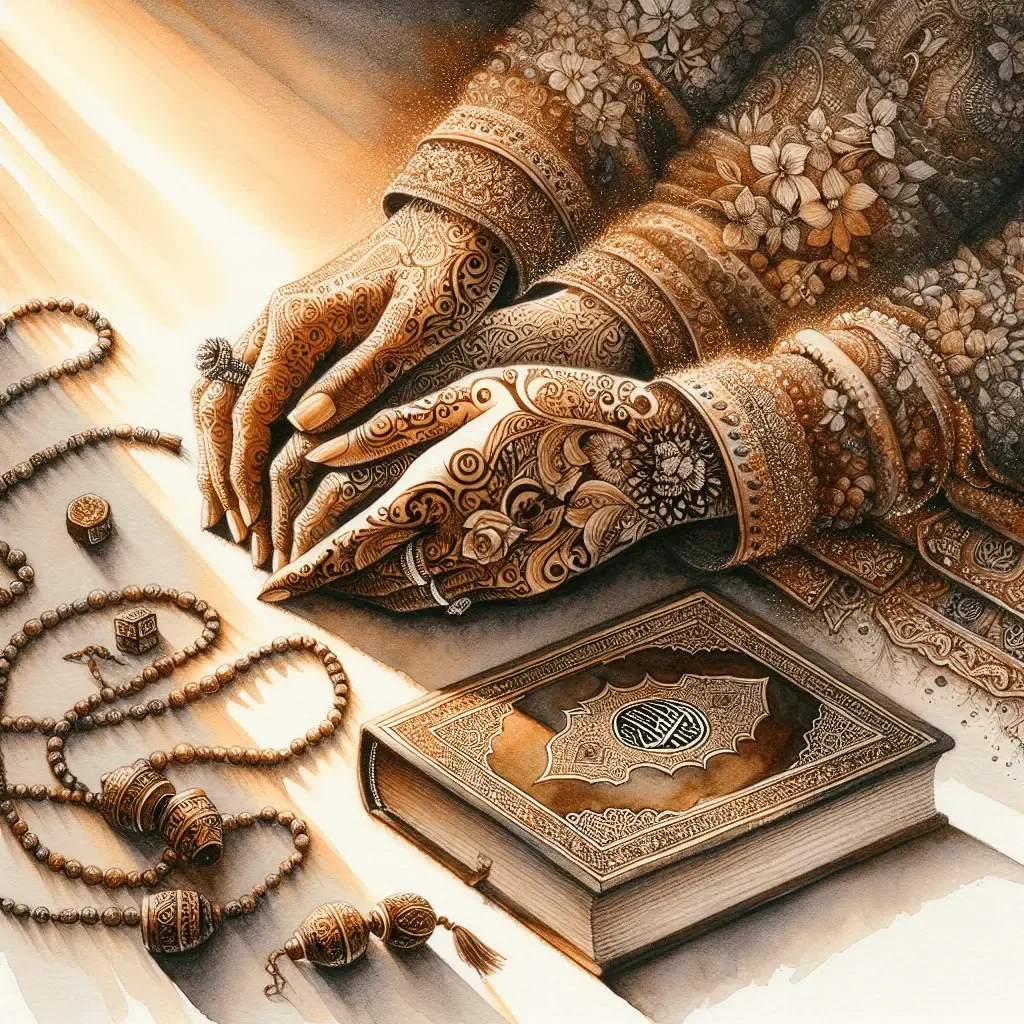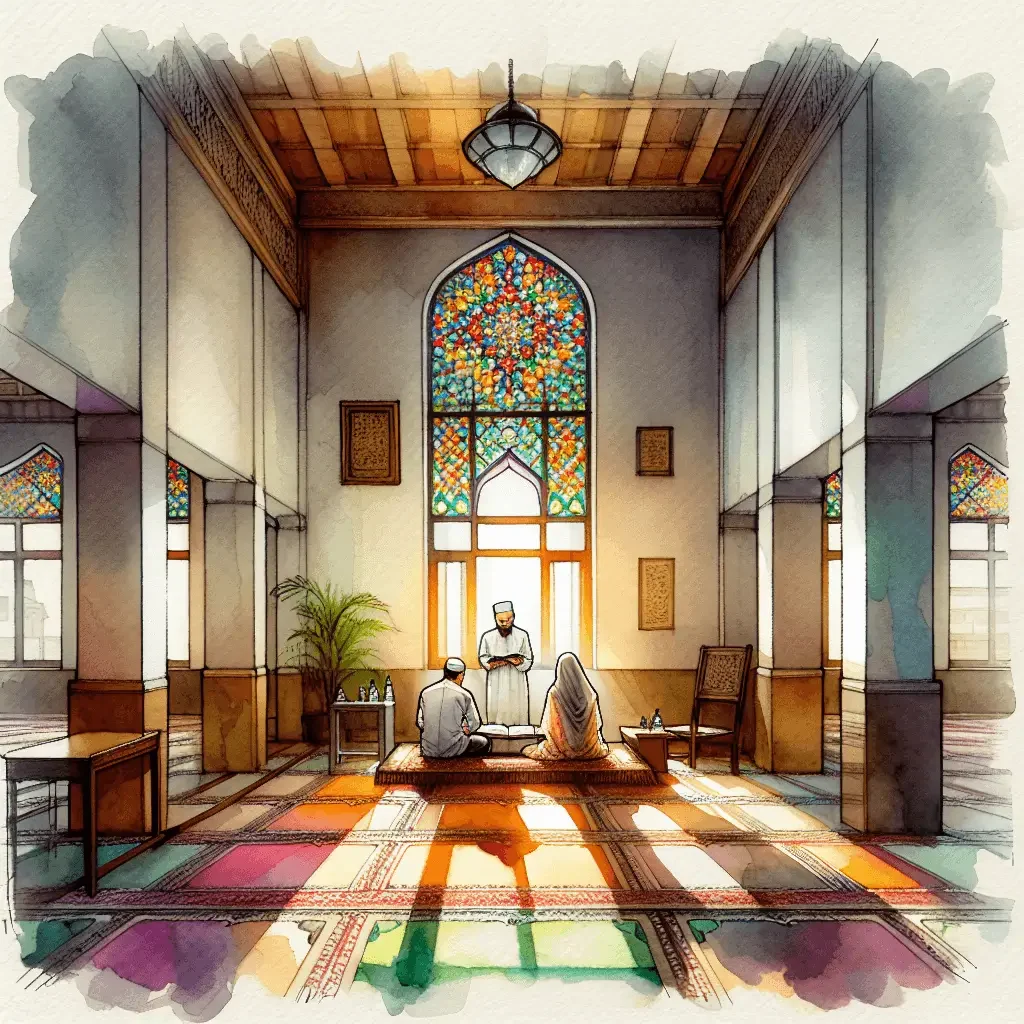Islamic Marriage Rules on Consanguinity, Foster Families & Faith

Marriage (Nikah) in Islam is a sacred covenant guided by core principles of love, respect, and the fulfillment of religious duties. It is a means of completing one’s faith, building a strong family, and embarking on a journey of personal and spiritual growth. While the essence of Islamic marriage is unchanging, specific practices and types of unions may vary based on cultural interpretations and schools of thought. This guide explores these nuances, emphasizes core Islamic principles, and offers guidance for navigating this profound journey.
Essential Pillars of Marriage in Islam
For a marriage to be valid under Islamic law, several key conditions must be met:
- Mutual Consent: Both partners must freely express their agreement to the marriage. This emphasizes the importance of choice and respect within the union. Islamic marriage prioritizes individual choice. Traditions that pressure individuals into unions they don’t freely consent to go against the spirit of this essential pillar.
- Case Study: Ahmed’s family expected him to marry his cousin, a tradition in their culture. However, he respectfully explained his desire to choose a spouse with whom he felt a mutual connection and understanding.
- Witnesses: A minimum of two credible witnesses are required to attest to the marriage contract, ensuring transparency and community support.
- Mahr (Dowry): This is a gift from the husband to his wife, symbolizing his commitment and providing her with financial security. The amount and nature of the mahr are agreed upon mutually.
Sources of Guidance: The Holy Quran states, “And among His signs is this, that He created for you mates from among yourselves, that you may dwell in tranquility with them, and He has put love and mercy between your hearts” (30:21).
Types of Marriage in Islam
- Permanent Marriage (Nikah): The most common and universally accepted form, intended as a lifelong commitment with the full rights and obligations of marriage.
- Temporary Marriage (Mut’ah): The permissibility of temporary marriage (Mut’ah) is a complex issue with ongoing discussion among Islamic scholars. Some schools of thought, particularly within Shia Islam, deem it permissible under specific conditions, while others maintain it is prohibited. It involves a fixed duration and specific terms agreed upon by both partners.
- Other Forms: Less common forms may exist in specific cultural contexts. It’s important to consult reliable religious sources for accurate information.
Addressing Controversies
Regardless of differing views on specific forms of marriage, the principles of mutual consent, respect, and fulfilling the rights and duties as outlined in the Quran and Hadith are paramount in Islamic marriage.
The Purpose and Importance of Marriage
Marriage in Islam extends far beyond a legal contract. It serves profound spiritual, emotional, and societal purposes:

- Companionship & Love: Marriage offers a haven of love, support, and shared experiences. The Prophet Muhammad (PBUH) encouraged spouses to express affection, fostering a deep and lasting bond.
- Case Study:* Salma and Yusuf, deeply in love, initially focused on the romantic aspects of marriage. Over time, they realized their bond was a source of spiritual strength, reminding them to pray and supporting each other in becoming better Muslims.
- Spiritual Growth: A righteous marriage provides a space for both partners to grow in their faith, reminding each other of Allah and encouraging good deeds.
- Building a Strong Family: Marriage is the cornerstone of family, essential to raising children with Islamic values and creating a strong Muslim community.
Navigating Marriage Traditions
While cultural celebrations vary across the Muslim world, there are overarching Islamic principles for the wedding night and the nikah ceremony:
- The Wedding Night: Traditionally, a simple celebration with close loved ones marks the occasion. It focuses on prayers, well-wishes for the couple, and a shared meal. Islamic weddings center on the nikah ceremony itself. While joyous celebrations are beautiful, prioritize starting your married life on a foundation of financial stability and in accordance with your values.
- Case Study:* Zara and Ali opted for a simple nikah with close loved ones followed by a shared meal and heartfelt duas (supplications). They used their savings to start building a home together.
- The Nikah Ceremony: The central focus is the marriage contract. An Imam (religious leader) typically officiates, reciting verses from the Quran and offering blessings. Simplicity and sincere intentions are emphasized.
Performing a Simple Nikah Ceremony
A Nikah ceremony is a beautiful and relatively simple event that marks the beginning of a Muslim marriage. Here’s a step-by-step guide to help you plan yours:

- The Proposal and Acceptance: The marriage process begins with the proposal. The groom, or his representative (Wali), proposes marriage to the bride or her Wali (guardian), typically the father or closest male relative. The bride expresses her clear and willing acceptance for the union.
- The Nikah Contract (Aqd al-Nikah): A written marriage contract is prepared, outlining the Mahr (dowry) and any other agreed-upon stipulations. Both the bride and groom, along with their respective guardians, review and sign the contract.
- The Ceremony: The ceremony itself can be held at a mosque, a community center, or even a private home. An Imam (religious leader) typically officiates. Key elements include:
- Opening Prayer: The Imam or another respected elder recites Quranic verses and offers a prayer for the couple’s blessings and guidance.
- Khutbah (Sermon): A short sermon is delivered, often focused on the importance of marriage in Islam and the rights and responsibilities of spouses.
- Exchange of Vows: While not mandatory, some couples may choose to express simple vows of love, respect, and commitment.
- Signing the Contract: The bride, groom, and their witnesses (at least two Muslim adults) sign the Nikah contract. This officially solemnizes the marriage.
- Supplications and Dua: The Imam or a respected elder leads prayers and supplications (Dua) for the couple’s happiness, prosperity, and a successful marriage.
Marriage as an Act of Worship
Fulfilling marital duties and maintaining a loving relationship can be seen as acts of worship. The Prophet Muhammad (PBUH) said, “When any of you marries, he has completed half of his religion…”. Intentionality is key: everyday actions within marriage – showing kindness, fulfilling your spouse’s needs, caring for them when ill – become imbued with spiritual meaning when done with the right intention.
Overcoming Challenges in Marriage
Conflict is a normal part of any relationship. Islam offers tools to navigate challenges in a way that honors its teachings. Virtues like patience (sabr), forgiveness, and clear, compassionate communication are essential. The Quran and the life of the Prophet (PBUH) provide examples of how to handle disagreements with wisdom and grace. Couples can also practice making dua (supplication) together, seeking counsel from a wise elder or Imam, and giving each other space when needed.If conflicts feel overwhelming, seeking counsel from a wise Imam or a therapist specializing in Islamic marriage can provide invaluable tools for healing and growth.
Case Study:* Omar and Ayesha sought counseling to improve their communication. They learned how to express themselves with respect, practice active listening, and find compromises that honored both of their needs.
Guidance, Prohibited Unions, and Building a Strong Islamic Family
Seeking Guidance: The Role of Religious Scholars
Marriage can be complex, with questions beyond simple rulings. In situations like family disputes, potential divorce, or navigating cultural expectations not rooted in faith, it is wise to consult with reputable Islamic scholars. These scholars possess both knowledge of legal rulings and the compassion to guide couples with wisdom and sensitivity.
Case Study: After facing a complex situation in their marriage, Khalid and Maryam sought guidance from a scholar known for his balanced approach and understanding of modern life challenges.
Prohibited Marriages in Islam
Islam provides guidance on prohibited marriage unions to protect the well-being of individuals, families, and society as a whole. Some key categories include:
- Consanguinity: Marriages between close blood relatives are forbidden to uphold clear family boundaries and reduce the risk of genetic disorders.
- Foster Relationships: Marriages between foster parents and children, or between individuals who have a milk-sibling relationship are prohibited.
- Polytheism: Islamic law does not permit marriages between Muslim women and non-Muslim men. This guidance aims to create a household where religious beliefs are aligned, supporting spiritual growth and unity within the family. Muslim men may potentially marry women from Abrahamic faiths (Judaism and Christianity), faiths which share common roots with Islam.
- Other Restrictions: There are prohibitions against marrying a person already married, or being married to multiple close relatives simultaneously.
- Case Study:* Fatima developed feelings for a kind and respectful non-Muslim man. After careful reflection and seeking advice, she realized the importance of shared faith for the spiritual journey she envisioned in marriage.
Building a Strong Islamic Family
- The Home as a Madrasah: Emphasize that the Islamic education of children begins at home, with parents as the first teachers.
- Rituals & Routines: Discuss incorporating daily prayers, reading Quran together, and sharing stories of the prophets into family life.
- Creating a Halal Environment: Offer tips on making the home a space free from haram influences (what’s watched on TV, the kind of company children keep, etc.), while fostering a positive and nurturing atmosphere.
Marriage in Islam is a profound path of love, commitment, and spiritual growth. By understanding the essential pillars, the beautiful purpose, and the guiding principles for what unions are permissible, couples can embark on this sacred bond with a foundation of knowledge and faith.
- Reiterate Core Values: Respect, partnership, and spiritual growth apply to all couples who seek to build a marriage reflecting Islamic values.
- Encouraging Growth: “By seeking knowledge, consulting with wise mentors, always striving to embody the principles of Islam, and making Allah a central part of their union, couples can build a marriage that reflects the beauty and strength of their faith.”
FAQ: Understanding the Nikah Ceremony
Who needs to be present for the Nikah to be valid?
Can we personalize the Nikah ceremony?
Readings: Choose meaningful verses from the Quran or Hadith to be recited.
Vows: While not required, you can write your own vows expressing love and commitment.
Cultural traditions: Incorporate elements from your cultural backgrounds (if desired), as long as they don’t contradict Islamic teachings.

